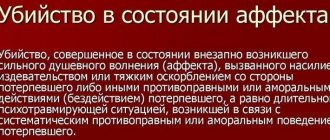ST 228.1 of the Criminal Code of the Russian Federation . Illegal production, sale or shipment of narcotic drugs, psychotropic substances or their analogues, as well as illegal sale or shipment of plants containing narcotic drugs or psychotropic substances, or their parts containing narcotic drugs or psychotropic substances
1. Illegal production, sale or shipment of narcotic drugs, psychotropic substances or their analogues, as well as illegal sale or shipment of plants containing narcotic drugs or psychotropic substances, or their parts containing narcotic drugs or psychotropic substances, -
shall be punishable by imprisonment for a term of four to eight years, with or without restriction of freedom for a term of up to one year.
2. Sale of narcotic drugs, psychotropic substances or their analogues, committed:
a) in a pre-trial detention center, correctional institution, administrative building, administrative structure, educational organization, at sports facilities, railway, air, sea, inland water transport or subway, on the territory of a military unit, in public transport or premises used for entertainment or leisure;
b) using the media or electronic or information and telecommunication networks (including the Internet), -
shall be punishable by imprisonment for a term of five to twelve years with a fine in the amount of up to five hundred thousand rubles or in the amount of the wages or other income of the convicted person for a period of up to three years, or without it, and with or without restriction of freedom for a term of up to one year.
3. Acts provided for in parts one or two of this article, committed:
a) by a group of persons by prior conspiracy;
b) in a significant amount, -
shall be punishable by imprisonment for a term of eight to fifteen years with or without a fine in the amount of up to five hundred thousand rubles or in the amount of the wages or other income of the convicted person for a period of up to three years and with or without restriction of freedom for a term of up to two years.
4. Acts provided for in parts one, two or three of this article, committed:
a) an organized group;
b) by a person using his official position;
c) by a person who has reached the age of eighteen, in relation to a minor;
d) on a large scale, -
shall be punishable by imprisonment for a term of ten to twenty years, with or without deprivation of the right to hold certain positions or engage in certain activities for a period of up to twenty years, and with a fine in the amount of up to one million rubles or in the amount of the wages or other income of the convicted person for a period of up to five years or without it.
5. Acts provided for in parts one, two, three or four of this article, committed on an especially large scale, -
shall be punishable by imprisonment for a term of fifteen to twenty years with deprivation of the right to hold certain positions or engage in certain activities for a period of up to twenty years or without it and with a fine in the amount of up to one million rubles or in the amount of the wages or other income of the convicted person for a period of up to five years or without it or life imprisonment.
Commentary to Art. 228.1 of the Criminal Code
1. The subject of the crime completely coincides with the subject in Article 228 of the Criminal Code of Russia.
2. The objective side is characterized by the commission of at least one of the actions specified in the disposition of the article. The concepts of illegal production, sales, and transfer are contained in Resolution of the Plenum of the Supreme Court of the Russian Federation dated June 15, 2006 No. 14.
Liability arises regardless of the size of narcotic drugs, psychotropic substances and their analogues, plants containing narcotic drugs or psychotropic substances, or parts of plants.
3. The crime is considered completed from the moment of committing one of the actions specified in the law.
4. The place and method of committing a crime are mandatory signs of an objective party to qualify the act under Part 2 of Art. 228.1 CC.
5. The subjective side of the crime is characterized by direct intent. Intent to sell may be evidenced by: acquisition, production, processing, storage, transportation of funds and substances by a person who does not use these substances; quantity (volume); placement in packaging convenient for sale; existence of agreements with consumers, etc. (see paragraph 13 of the Resolution of the Plenum of the Supreme Court of the Russian Federation of June 15, 2006 No. 14).
Terms of punishment under Article 228 of the Criminal Code of the Russian Federation
The terms of punishment under Article 228 of the Criminal Code of the Russian Federation are divided into 3 main points according to the severity of the violation, and only the court determines which of them will be applied in each specific case.
• If any activity with narcotic substances is detected, including not only synthetic, but also herbal drugs in a certain quantity, the accused faces a minimum penalty of a fine of up to 40,000 in the national currency of Russia. Alternatively, a prison sentence of up to three years may be imposed. • If a drug transaction is determined to be large, punitive sanctions become more stringent. The culprit will be imprisoned for a term of three to ten years and will receive fines of up to half a million rubles. • Particularly large drug transactions are punishable by fines of up to half a million rubles and imprisonment for a term of 10-15 years.
In addition to the size of the transaction, the object of which is drugs, Art. 228 Part 1 of the Criminal Code of the Russian Federation determines the term, taking into account other nuances that affect the severity of the punishment.
Second commentary to Art. 228.1 of the Criminal Code of the Russian Federation
This provision establishes liability for illegal actions related to the sale of narcotic drugs, psychotropic substances or their analogues, and representing links in the chain of illicit trafficking of these drugs and substances.
The production of narcotic drugs, psychotropic substances and their analogues means actions aimed at the serial production of these drugs or substances from chemicals or other substances and (or) plants (clause 12 of the resolution).
Illegal sale of narcotic drugs, psychotropic substances or their analogues, as well as plants (their parts) containing narcotic drugs or psychotropic substances, means any methods of their paid or gratuitous transfer to other persons (sale, donation, exchange, payment of debt, loan, etc.). d.) (clause 13 of the resolution), as well as other methods of distribution, for example by injecting another person.
The sale of other drugs and substances under the guise of narcotic drugs or psychotropic substances in order to seize the money or property of defrauded citizens should be qualified as fraud, and the actions of buyers with a large amount of drugs or substances passed off as narcotic or psychotropic drugs should be classified as an attempt at their illegal acquisition (p. 16 of the resolution).
Illegal shipment should be understood as the movement of narcotic drugs or psychotropic substances in the form of postal, luggage items, by courier or by other means without the personal presence of the sender (clause 17 of the resolution).
The crime is considered completed from the moment any of the considered actions are committed (clause 13.1 of the resolution). If a person, in order to carry out the intent to illegally sell, illegally acquires, stores, transports, manufactures, processes narcotic drugs, psychotropic substances or their analogues, as well as plants (parts thereof) containing narcotic drugs or psychotropic substances, thereby commits actions aimed at their subsequent sale and forming part of the objective side of the sale, but due to circumstances beyond his control does not transfer the specified means, substances, plants to the purchaser, then such a person bears criminal liability for attempted illegal sale of these means, substances, plants (clause 13.2 of the resolution) .
The subjective side is characterized by direct intent. Responsibility begins at age 16.
Qualified types of crime (Part 2) are characterized by its commission:
a) in a pre-trial detention center, correctional institution, administrative building, administrative structure, educational organization, at sports facilities, railway, air, sea, inland water transport or subway, on the territory of a military unit, in public transport or premises used for entertainment or leisure;
b) using the media or electronic or information and telecommunication networks (including the Internet).
1. Particularly qualified types of this crime are characterized by its commission:
— part 3:
a) by a group of persons by prior conspiracy (see Part 2 of Article 35 of the Criminal Code); b) in a significant amount (see commentary to Article 228 of the Criminal Code);
— part 4:
a) an organized group (see Part 3 of Article 35 of the Criminal Code);
b) by a person using his official position (see commentary to paragraph “c” of Part 2 of Article 127.1 of the Criminal Code);
c) by a person who has reached the age of 18 in relation to a minor (see commentary to Article 134 of the Criminal Code);
d) on a large scale (see commentary to Article 228 of the Criminal Code);
— part 5:
on an especially large scale (see commentary to Article 228 of the Criminal Code).
2. Significant, large and especially large amounts of narcotic drugs, psychotropic substances or their analogues, as well as plants (their parts) containing narcotic drugs or psychotropic substances, are defined in the same way as in relation to Art. 228 CC.
Everything about criminal cases
- the question of how to qualify the actions of a guilty person who, before the search begins, admits guilt and voluntarily gives up items - has long been resolved in judicial practice, there are clarifications of the Supreme Court on this matter:
Confession upon arrest
- according to clause 29
Plenum No. 58,
confession
after arrest is not considered such.
This thesis of the Supreme Court is categorical and under the circumstances you described, there is no confession and there is no chance of convincing the court to admit it. (More details about the nuances of this mitigating circumstance can be read here: Confession
- three varieties (according to the possibilities of use)
Active assistance during arrest
- in paragraph 30
Plenum No. 58 (expanding the concept of active assistance) there is a fragment that coincides in meaning with the actions of voluntary surrender of objects, so it is indicated that if a person “
indicates the place of concealment of the stolen property, the location of the instruments of crime, other items that can serve as means of detecting a crime and establishing the circumstances of the criminal case).
- but I think it is impossible to apply this instruction of the Supreme Court to your circumstances, according to the general meaning of paragraph 30
Plenum No. 58 (which contains the most complete instructions on what should be interpreted as active assistance), the actions of the perpetrator must have some practical value for the investigation. At a minimum, this value can be expressed at least in actions that save time and organizational efforts of the investigative authorities. In practice, active assistance is most often expressed in testifying against accomplices. But in your case, there was no value in the actions.
Voluntary extradition upon arrest
- according to note 1
to 228 of the Criminal Code and
paragraph 19
of Plenum No. 14, voluntary delivery of narcotic drugs means the issuance by a person of such funds to government officials if this person has a real opportunity to dispose of them in another way.
- in the circumstances you described, it is impossible to assert the voluntary nature of extradition; its involuntary nature is too obvious.
Admission of guilt upon arrest
- in paragraph 29
Plenum No. 58 contains an indication that admission of guilt immediately after arrest can be taken into account as a mitigating circumstance.
In this case, it will belong to the group of so-called it belongs to the group of other mitigating
circumstances (which are mentioned in
Part 2 of 61 of the Criminal Code
).
This type of mitigating factors is characterized by the fact that they are not mandatory for the court, therefore, in cassation they cannot play the role of grounds for changing the sentence (More information about the use of mitigating factors in the cassation stage can be read here: Mitigating circumstances
in cassation, methods of application.
TOTAL
:
- the very direction of thought is correct, since confession and active assistance belong to the group of mandatory mitigating
circumstances and if these mitigating factors (not taken into account in previous instances) are recognized at the cassation stage, then this is a 100% mitigation of the sentence.
- but unfortunately, there is no confession, there is no voluntary extradition, that is, there are grounds for the cassation court to recognize a mitigating circumstance, paragraph 1, 61 of the Criminal Code
not seen.
- admission of guilt - there is (albeit a big question, as it was not confirmed in court), but for cassation the role of grounds for reversing the verdict ( Part 1 401.15 of the Code of Criminal Procedure
) can't play.
— I believe that none of the circumstances you cited are of value for the cassation appeal.
Changes in drug legislation Article 228 and 228
- Presidential elections in March 2022 - this event may become a chance for release from punishment and for its mitigation. In particular, such a point is present in Ksenia Sobchak’s election program in the block of judicial and legal reforms. In addition, in May 2000, exactly two months after the election of Vladimir Putin as president, the largest amnesty in Russian history was announced, timed to coincide with the 55th anniversary of Victory in the Great Patriotic War.
- Also, one of the prerequisites is a proposal from the Commissioner for Human Rights in the Kaluga Region, Yuri Zelnikov, to release some groups of prisoners, which V.V. Putin considered possible for consideration.
- In 2022, two draft resolutions were submitted to the Duma: the first - from the Russian Ministry of Internal Affairs on the release of certain groups of prisoners, the second - from LDPR deputies, providing for an amnesty for those convicted with “light” articles and dedicated to the 100th anniversary of the October Revolution.
- The most common and significant factor for the event is the overcrowding of prisons; Partial relief from serving a sentence will help to “unload” them a little.
Will there be an amnesty in 2022?
By December 1, the government, together with regional executive authorities, is instructed to ensure the creation of specialized rehabilitation centers for minor drug addicts, as well as to develop and implement a program for comprehensive rehabilitation and resocialization of this category of citizens.
The Council decided to consider bills in the first reading at meetings of the State Duma on Fridays in accordance with Part 7 of Article 118 of the Rules of the State Duma at a fixed time (17 hours 30 minutes). The Council made a decision at a meeting of the State Duma on March 10, 2022, draft federal law N1015271-6 “On amendments to the Law of the Russian Federation “On the Protection of Consumer Rights” in terms of establishing additional consumer guarantees” (first reading) Changes in 2022, Article 228 part 2 in part one of Article 228, the words “part one of Article 228,” shall be replaced with the words “parts one and two of Article 228,”; a) in paragraph two of part two, replace the words “from three to ten years” with the words “from two to five years”; b) in paragraph two of part three, replace the words “from ten to fifteen years” with the words “from five to fifteen years.”
— Grant the court the right to defer serving the sentence for those convicted under Part 2 of Article 228 of the Criminal Code of the Russian Federation to real imprisonment, who are recognized as drug addicts and have expressed a desire to undergo medical rehabilitation. That is, the bill proposes to provide those convicted under Part 2 of Article 228 of the Criminal Code of the Russian Federation with the opportunity to receive treatment instead of being sent to prison. I will add that the bill does not provide for mitigation of punishment for drug sales, therefore, amendments to Article 228.1 of the Criminal Code of the Russian Federation are not expected in 2022.
Lawyer Kudryashov Konstantin
According to Art. 228 of the Criminal Code of the Russian Federation, punishment is possible both for the acquisition of drugs for compensation (for money or services) and for receiving drugs for free. The exception is their purchase only as prescribed by a doctor, which must be confirmed by a prescription, medical history and other medical documentation.
The subject of a crime under Art. 228, part 3 is a sane person who has reached the age of 16. The characteristic of the subjective side is guilt in the form of the presence of direct intent to commit the actions listed in the article. The offender is aware of the illegality of his actions and has the desire to commit them.
Amendments to Article 228 Part 2 entered into 2020
Accordingly, it is necessary to more actively apply mechanisms of legal incentives to such persons to give up drug use in order to timely return drug users to a normal lifestyle. The foregoing fully demonstrates the need to transfer the least dangerous crimes related to the possession of drugs without the purpose of sale to the category of less serious ones.
You may be interested in:: Labor veteran of the Kemerovo region. How to calculate experience
Official Website of the State Duma Amendments to Article 228 Part 2
The same acts committed on an especially large scale - Significant, large and especially large amounts of analogues of narcotic drugs and psychotropic substances correspond to significant, large and especially large amounts of narcotic drugs and psychotropic substances of which they are analogues. 228 of the Criminal Code of the Russian Federation changes March 2022 Were there any amendments to Article 228, Part 1 in 2022? and when were the last amendments? And what is the punishment? March 16, 2022, 00:38 Anna,
to the draft federal law “On amendments to Articles 821 and 228 of the Criminal Code of the Russian Federation and Article 398 of the Criminal Procedure Code of the Russian Federation Thus, currently, crimes related to the possession of narcotic drugs and psychotropic substances in large and especially large quantities without the purpose of sale , belong to the same category as similar crimes committed for the purpose of sales - grave and especially grave crimes.





